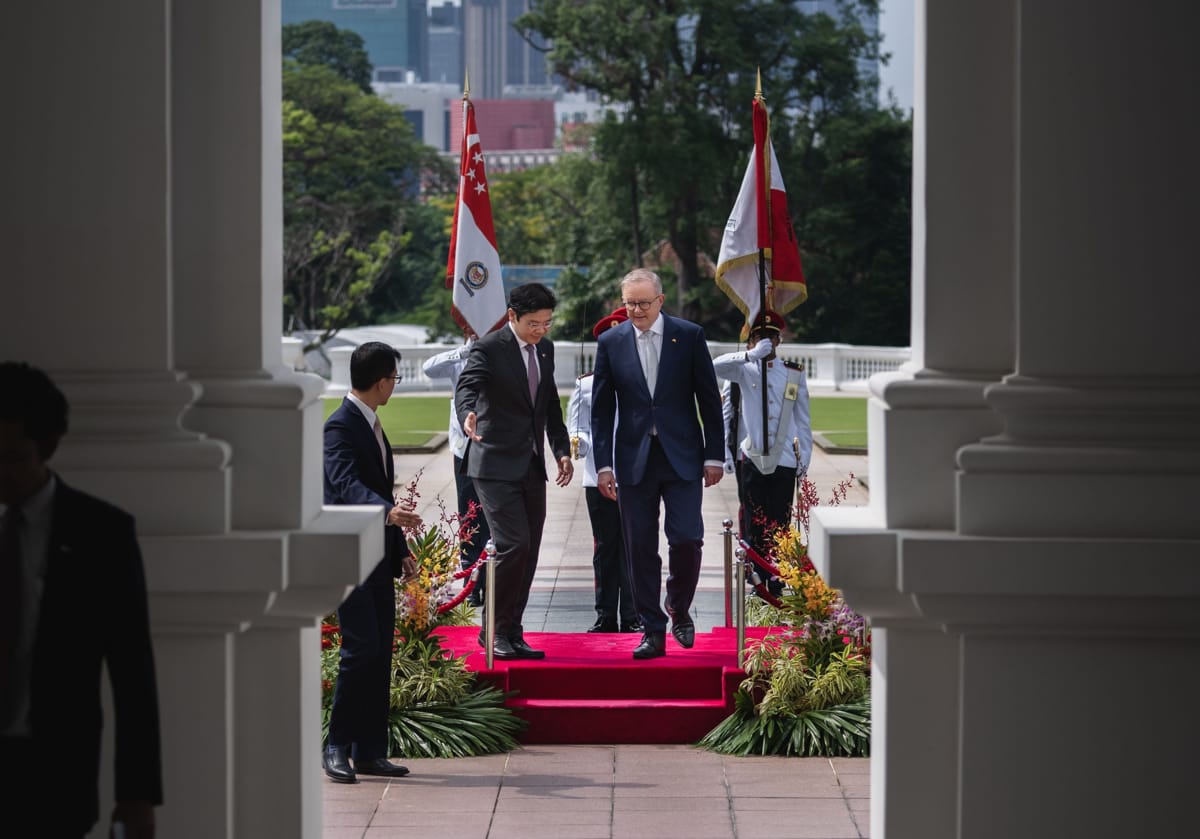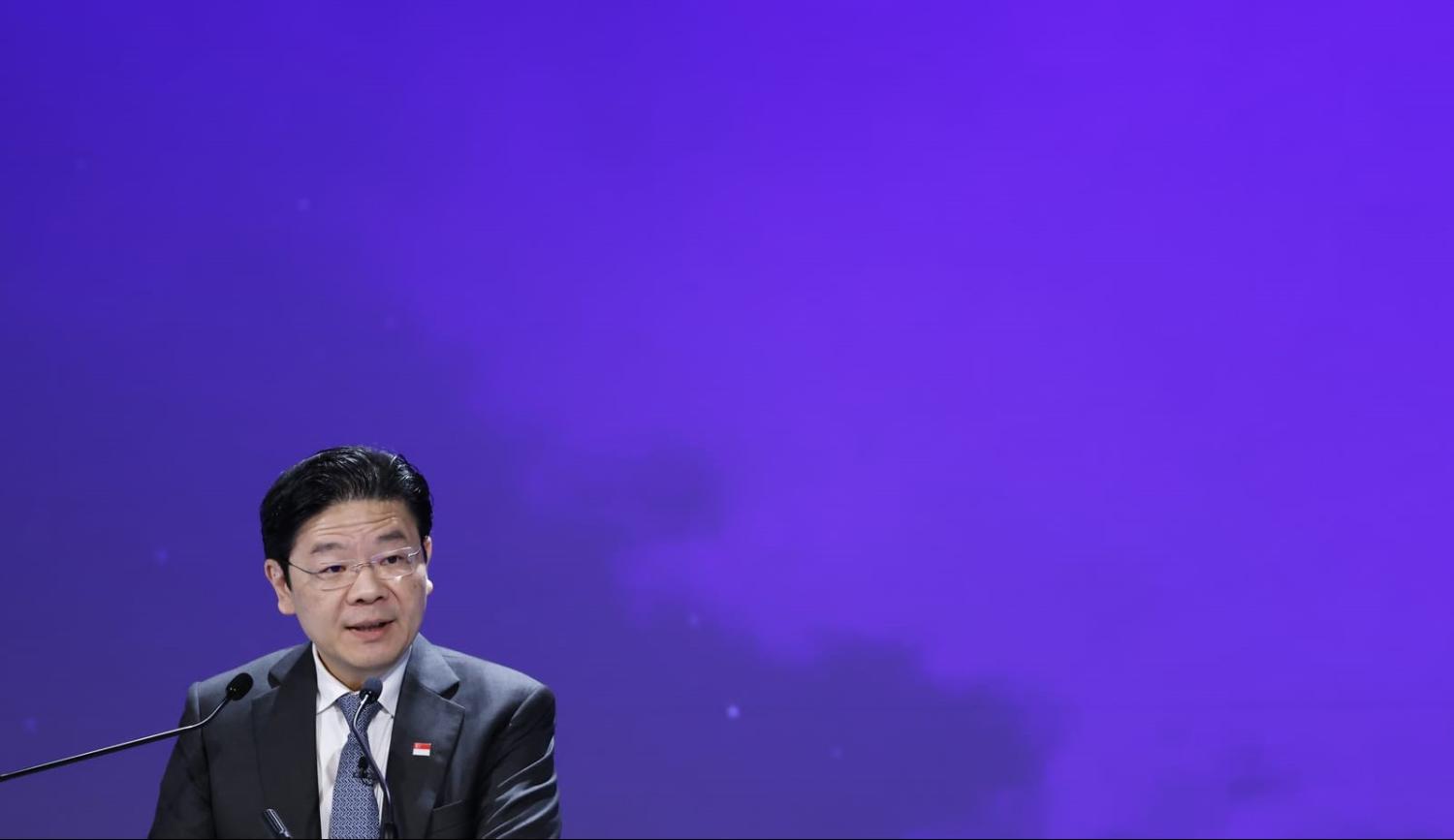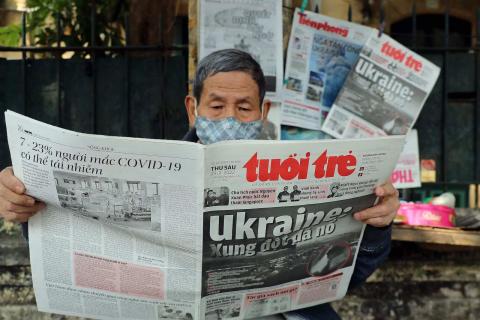With a change of PM now announced in Singapore, we’re again featuring this analysis originally published 9 November 2023.
For only the fourth time in its history, Singapore will have a change in leadership. Prime Minister Lee Hsien Loong has announced he intends to hand over the premiership to his deputy, Lawrence Wong, by November 2024, marking the transition to the next generation of leadership of the People’s Action Party (PAP), which has ruled the island-state since independence in 1965.
Wong, who turns 53 next year, entered politics in 2011 and has since served in various ministerial positions, including defence, education, finance, and national development. After successfully leading Singapore in response to the Covid-19 pandemic, Wong was chosen by his fellow cabinet ministers in early 2022 as a leader of the next generation through a selection process that excluded Lee and other senior ministers. Shortly after that, Lee appointed him as Deputy Prime Minister.
Singaporean politics is defined by generations. As former PAP minister Professor S Jayakumar explained, the term “generation” indicates a distinct change rather than a complete change of cabinets as some ministers served more than one prime minister. The first prime minister, Lee Kuan Yew, led the 1st generation leadership from 1965 until 1990. He was replaced by Goh Chok Tong, who held the premiership for the next 14 years until 2004, when Lee Hsien Loong took over the helm.
The different portfolios Wong has held provides him with a broad range of experience. However, his stint as Deputy Prime Minister has been short. It is likely that several 3rd generation PAP leaders will continue to serve in the cabinet for the next several years to provide support to Wong’s government at a time of strategic uncertainty.
Navigating China-US rivalry presents the most obvious challenge. Singapore is keen to avoid taking sides as it benefits from strong economic relations with China and defence ties with the United States.
Trade with China has been growing. For example, Singapore’s exports to mainland China grew exponentially from a mere USD$5.3 billion at the start of the century to nearly USD$68 billion in 2021. In April this year, the island-state formally upgraded relations with China from an “All-Round Cooperative Partnership Progressing with the Times” to an “All-Round High-Quality Future-Oriented Partnership” while there are also plans to upgrade the 14-year-old China-Singapore Free Trade Agreement (CSFTA).
However, the United States remains a crucial security partner for Singapore. American training and armaments was pivotal in transforming the Singapore Armed Forces from a defensive to an offensive-oriented force in the late 1970s, and continues to provide the SAF with a regional military edge. The sales of advanced F-35Bs combat aircraft to Singapore, which the US denied to other regional states, exemplify the close defence relations between the two countries.
Navigating China-US rivalry may be challenging for the new Singaporean leadership. This is especially so if the two major powers attempt to pressure the island-state to take sides, a point that the current Prime Minister Lee has drawn attention to publicly several times.

The China-US rivalry directly impacts Singapore’s domestic political dynamics too, as there is a divergent perception of China and the United States between Singaporean elites and the general population. About two-thirds of Singapore respondents in the 2022 Pew Research perceived China favourably. This finding sharply contrasted with the results from another survey conducted by the Singapore’s ISEAS – Yusof Ishak Institute in the same year reporting the attitudes of Singaporean elites and policymakers. More than 69% of the respondents in that survey expressed little or no confidence that China would be a reliable partner to contribute to global peace and security.
The divergence in perceptions between the Singaporean elites and the general population is concerning, given that domestic dynamics may pressure the Singaporean government to adjust its relations with China and the United States in the long term. This is where a few of the 3rd generation ministers with more experience in critical portfolios such as domestic and foreign affairs could provide steady hands to Wong’s cabinet. In fact, Lee himself hinted he could serve under Wong: “I will be at the new PM's disposal. I will go wherever he thinks I can be useful”.
The 1st generation leadership under Lee Kuan Yew successfully guided Singapore through the Cold War. However, the circumstances at that time presented a less complex environment, given that the island-state had a deeper and broader economic and defence relations with the United States than the Soviet Union. The contemporary China-US rivalry is more complicated – one is Singapore’s key economic partner, while the other is a critical security actor.
At the height of the Cold War in 1967, Lee Kuan Yew stated, “Change is the very essence of life. The moment we cease to change, to be able to adapt, to adjust, to respond effectively to new situations, then we have begun to die”. Perhaps these words offer a philosophy for the 4th generation leadership led by Wong to consider while charting Singapore’s strategy through the treacherous waters of great power rivalry.

